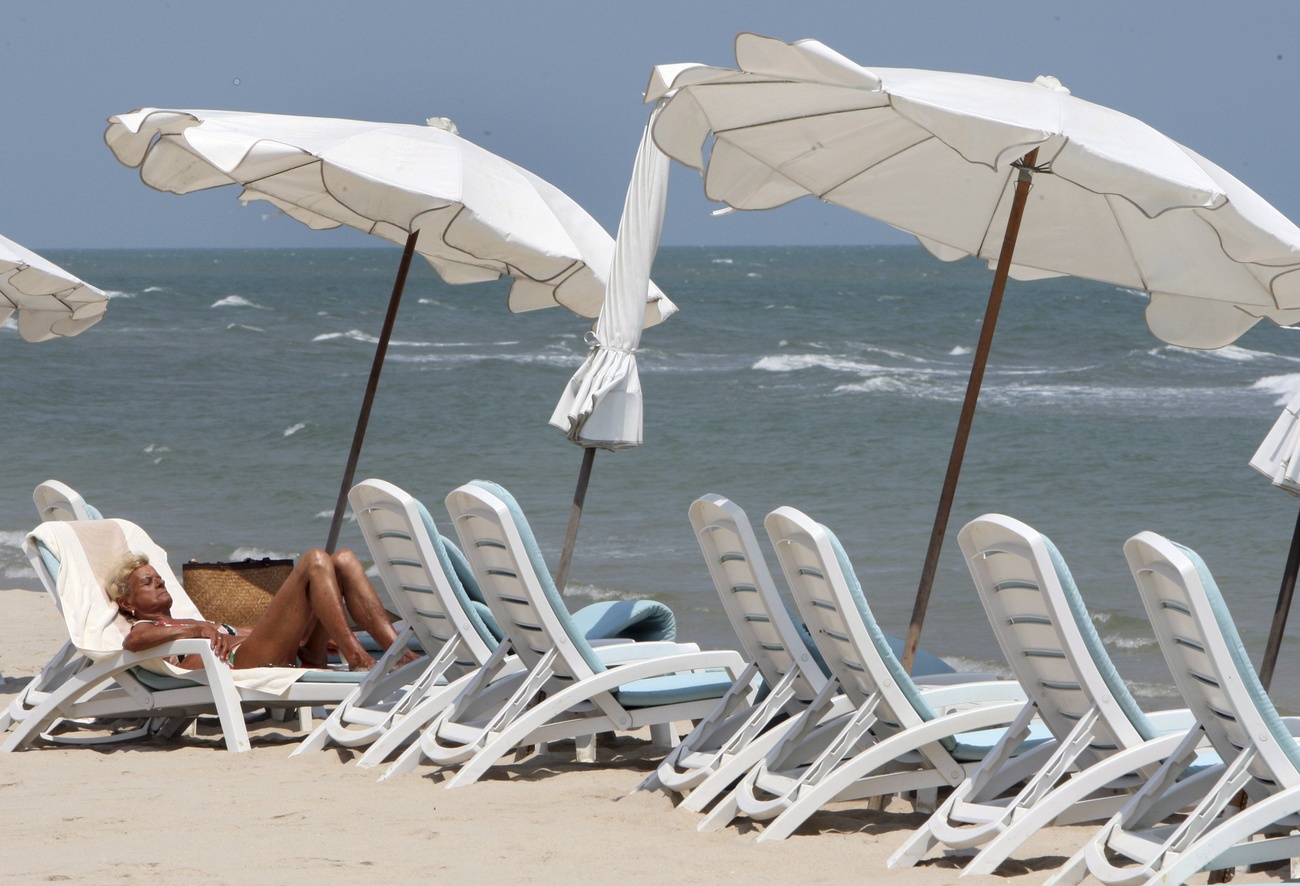A 27th canton? How the voices of Swiss Abroad can be heard
Should the Swiss Abroad have their own canton in order to have more say in elections in Switzerland? Political scientist Claude Longchamp examines the arguments for and against.
As sure as there are elections every four years, there is one complaint heard just before them: the voice of the Swiss Abroad is not strong enough! Under the current electoral system, Swiss candidates who live abroad have little chance of winning a seat.
The call for a 27th canton
The upcoming elections are certainly no exception. Green Party parliamentarian Nicolas Walder put a question to the House of Representatives as to how the Swiss Abroad could be better represented. Since then there has been talk in Swiss media of a 27th canton as a new constituency for the Swiss Abroad.
If it were really done properly, a constituency of that sort would have two seats in the Senate and half a dozen seats in the House of Representatives. The Swiss Abroad would have the same weight in parliament as, say, canton Graubünden.
The call for representation is far from being a novel idea. Expats are well aware that Italy and France have electoral arrangements that have seats permanently reserved in the nation’s parliament for their citizens elsewhere in the world. Switzerland has nothing like this – yet.
Support for the proposal in Switzerland is coming mainly from the left. There is no sympathy for it on the right. Greens, Social Democrats and Liberal Greens are open to it; a majority of the Swiss People’s Party, the Radical-Liberal Party and the Centre were clearly standoffish to Walder’s idea. If this division of opinion were to hold, just 85 of 200 votes would favour it in the House of Representatives, and 12 out of 46 in the Senate.

More
Political parties reflect how to woo Swiss expat votes
Arguments for and against
For those opposed, the only way to win a seat in either house of parliament in Switzerland is a person’s canton of residence. In the case of Swiss Abroad, that would be their last place of residence in Switzerland. Swiss Abroad like everyone else need to get elected this way, say the critics.
One could argue for a canton of their own for the Swiss Abroad by pointing to the systematic hurdles Swiss who live outside Switzerland have to face in an election. Nobody can get around them as a rule.
Tim Guldimann is a former diplomat who lives in Berlin. After he retired in 2015, he ran for the Social Democrats in canton Zurich. He was the first declared Swiss Abroad to overcome the hurdles to getting elected to the House of Representatives. As regards the Senate, no candidate from the Swiss Abroad has had any success.
Those opposed to such a constituency for the Swiss Abroad also point to the low voter turnout among expats. If this were higher, the chances of candidates from abroad being elected would automatically increase, they say.
In fact, voter turnout among the Swiss abroad lies between 20% and 25%, whereas it’s 45% to 50% in Switzerland. Swiss Abroad organisations know there’s a problem and have pledged to do more to mobilise their members. It remains to be seen whether they can make a difference.

More
Swiss Abroad president says communication is still a challenge
For the logic works the other way around: if Swiss the Abroad had their own constituency with several seats, their feeling of belonging would be that much stronger. The prospect of winning a seat increases the number of motivated candidates, as experience shows. And that would prompt the parties to found international branches and get into real campaigning, which would stimulate competition and increase involvement. It doesn’t work the other way around!
Few common interests
Opponents of a constituency for the Swiss Abroad have a further argument. Expats tend to have few common interests, they say, that would come from living in the same place. Given this situation, letting them have a new canton and a right to “regional” representation would soon show its limitations.
Common interests among politically active Swiss Abroad include free movement of people and social insurance programmes. Of course, election to parliament would mean they would have their say on every national issue.
If the Swiss Abroad had more in the way of common interests, elections to parliament would already have had electoral lists made up solely of Swiss Abroad, who would have run in the more populous cantons and would have scored 3% or 4%.
Yet representatives of the Swiss Abroad, when they do run for office, usually just appear on partisan and ideologically oriented lists, which reduces their chance of being elected.
There’s not much logic in this approach to representation regarding the Senate. There the aim is non-partisan cooperation, given regional interests. For the Swiss Abroad that would mean the interests of all Swiss citizens scattered around the world.

More
Trooping Swiss colours in the UK
Pointing a pragmatic way
What conclusions should be drawn from all this? I get the reasoning of those who want to see a 27th canton. It derives from the sheer lack of opportunity for Swiss Abroad candidates to get elected.
I think opponents and promoters of a 27th canton both have a point – but no more than that!
That makes it hard to put the Swiss Abroad in the same league as a domestic canton.
There is a case for strengthening their parliamentary voice as an interest group. There are many such groups in Swiss politics, many of whom manage to achieve much less in the way of representation in parliament than the Swiss Abroad.
There is already a parliamentary group called “Fifth Switzerland”, as the Swiss Abroad are also known, which brings together interested politicians from both houses. This group could be beefed up. It could be just the right lobby for Swiss Abroad in Switzerland.
It would also be an idea to strengthen the Council of the Swiss Abroad. It is non-partisan by nature, and it could be the group to consult or that can object when relevant legislation is being drafted.
Both these strategies would be easier to implement. Because creating a 27th canton would mean a constitutional amendment. That would come down to a nationwide vote with an overall majority and a majority of cantons needed to win it. There’s no chance of this happening in the absence of broad cross-party consensus.
Edited by Mark Livingston. Translated from German by Terence MacNamee.
More

In compliance with the JTI standards
More: SWI swissinfo.ch certified by the Journalism Trust Initiative












You can find an overview of ongoing debates with our journalists here . Please join us!
If you want to start a conversation about a topic raised in this article or want to report factual errors, email us at english@swissinfo.ch.